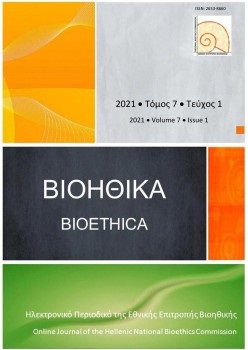Lie detection in the brain - Moral, social, legal and religious challenges
Abstract
Lie detection and recognition has been an ardent human desire since ancient times. Over the centuries, various methods have been devised to detect fraud. Some methods are low-tech, like the recognition of specialized facial expressions, while others use devices, such as the polygraph or "lie detector" designed in the early 20th century, which measure changes in human body like sweating, heart rate and blood pressure, in order to detect the lie. These methods have various applications in areas such as justice, the military and the secret services.
Recent attempts to detect falsehood have focused on measuring brain activity. This approach, unlike previous emotional arousal methods, detects physiological changes associated with cognitive processes during deception and therefore, according to the proponents of the technique, could detect the process of deception itself. The most well-known method of detecting a "neurophysiological difference between deception and truth" in the brain is functional Magnetic Resonance Imaging (fMRI), an MRI brain scan which reveals that deception is located in the prefrontal cortex, just behind the forehead.
However, how accurate and reliable are these “brain mapping” approaches to detect lies? What are the moral, legal, religious and social issues arising from the “invasion” of so-called neuroscience into personal data, individual freedom, and the right of non-self-incrimination and the "free will" of human beings? Critical questions, addressed in this paper, in an attempt to approach lie detection in the brain and the challenges - concerns that may determine the way we perceive human society in the future.
Article Details
- Zitationsvorschlag
-
Poulou, C. G. (2021). Lie detection in the brain - Moral, social, legal and religious challenges. Bioethica, 7(1), 72–85. https://doi.org/10.12681/bioeth.26539
- Ausgabe
- Bd. 7 Nr. 1 (2021): Bioethica
- Rubrik
- Reviews

Dieses Werk steht unter der Lizenz Creative Commons Namensnennung 4.0 International.
Authors who publish with this journal agree to the following terms:
- Authors retain copyright and grant the journal right of first publication with the work simultaneously licensed under a Creative Commons Attribution CC BY 4.0 License, which allows for immediate free access to the work and permits any user to read, download, copy, distribute, print, search, or link to the full texts of articles, crawl them for indexing, pass them as data to software, or use them for any other lawful purpose. Appropriate credit must be given by citing the author(s) and the original publication in this journal.
- Authors are able to enter into separate, additional contractual arrangements for the non-exclusive distribution of the journal's published version of the work (e.g. post it to an institutional repository or publish it in a book), with an acknowledgement of its initial publication in this journal.
We encourage authors to deposit their articles, as well as data underlying the publications, in institutional and/or other appropriate subject repositories.
Bioethica permits and encourages authors to archive the final publication pdf in institutional (e.g. the repository of the National Hellenic Research Foundation) or other appropriate subject repositories (e.g. SSOAR repository for social sciences), in compliance with institutional and/or funder open access policies, after publication in the BIOETHICA. Authors must provide bibliographic details that credit publication in the journal, as well as related funding details (when applicable).
Lists of institutional and other subject-based academic open access repositories can be found listed by country at the registry http://opendoar.org/countrylist.php
If your institution does not possess a repository you may deposit a copy of your paper at no cost with www.zenodo.org , the repository supported for open access research in the EU by the European Commission, through the project OpenAIRE (www.openaire.eu )



